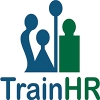Online Webinar
28 Jul 2015
HR Metrics: A Critical Measurement of the Impact of Human Resources Management
Effective HR metrics are not developed in a vacuum. The "right or best" metrics require a detailed understanding of your organization: how it generates revenue, its business strategies.
Overview:Effective HR metrics are not developed in a vacuum. The "right or best" metrics require a detailed understanding of your organization: how it generates revenue, its business strategies and objectives, it business imperatives, the risks it faces, the opportunities to be seized, and what it already measures.Thus, HR metrics should not be developed in a silo or owned exclusively by human resources. To be of value, HR metrics should measure the business factors that are important to the organization - not just HR - and should be co-owned by HR and the C-suite, other departments, and line managers. The right or best metrics are HR metrics that incorporate the input of stakeholders and contribute to informed decision-making. From this perspective, HR metrics should be predictive and action oriented. HR metrics that do not assist organizational decision making are of little value. The issue is not the number of metrics. As Albert Einstein noted: "Everything that counts can't be measured and everything that can be measured does not count." Why should you attend: Governmental and regulatory agencies have put employers on notice that they must create, maintain, and demonstrate procedures and activities that they are in compliance with the laws - and these laws are numerous. At the same time, investors, lending institutions, and third party administrators are constantly imposing requirements upon employers that ensure resources are properly used and that results are properly reported. In this environment, organizations must be able to demonstrate compliance through objective measures. The failure to demonstrate compliance with these requirements can impose significant liabilities. Thus employers need metrics and measurements that are strategic, operational, and transactional. They need metrics that help them identify monetary and non-monetary risks and help them manage revenue generation, productivity, labor costs, and profitability. Areas Covered in the Session:Gain an understanding of key HR metricsBe able to identify and assess the strategic and operational impact of HR metricsLearn the role of metrics in measuring and communicating valueReview the basics of using HR metrics in assessing human capital related risksLearn how HR metrics improve strategic and operational decision makingWho Will Benefit:HR ProfessionalInternal and External AuditorsRisk ManagersCEOs and CFOs
When
28 Jul 2015 @ 10:00 am
28 Jul 2015 @ 11:30 am
Duration: 1 hours, 30 minutes
Timezone: GMT -8:00
Where
Online Webinar
Language
English en
Organised by
Trainhr (deactivated)Speakers
Recent Publications in
Annual Report 2020
Publication, May 2021, bruegel.org
Religion, conflict, and global society
Publication, Nov 2020, diis.dk
Gender Budgeting: Step‑by‑step toolkit. Guidance for mainstreaming gender into the EU Funds
Publication, Jul 2020, eige.europa.eu

